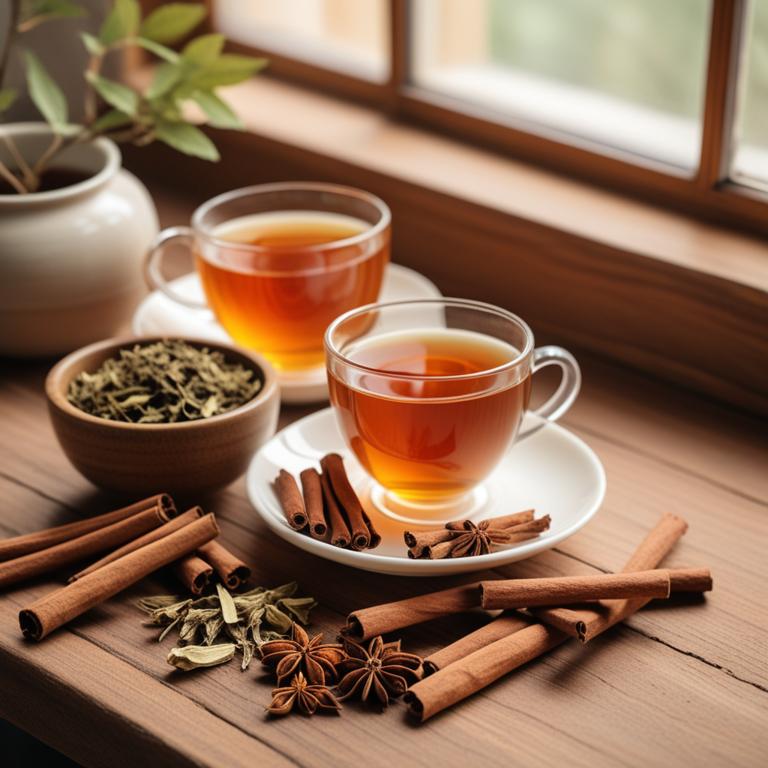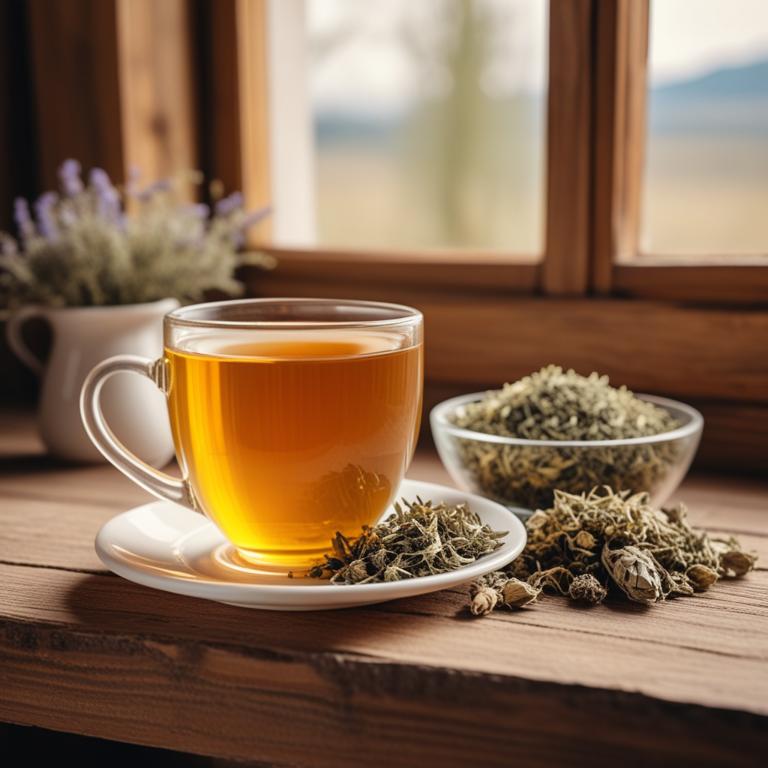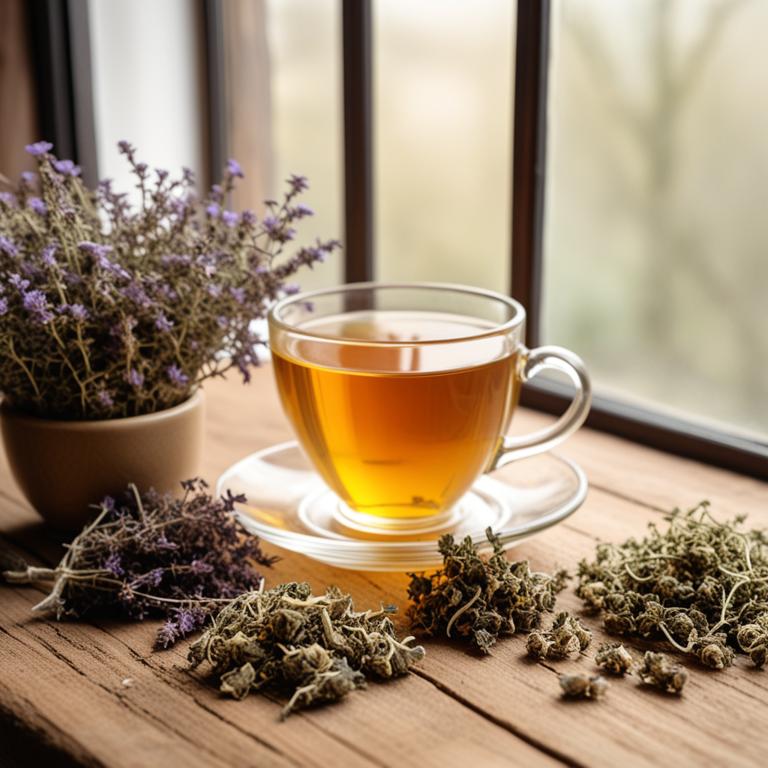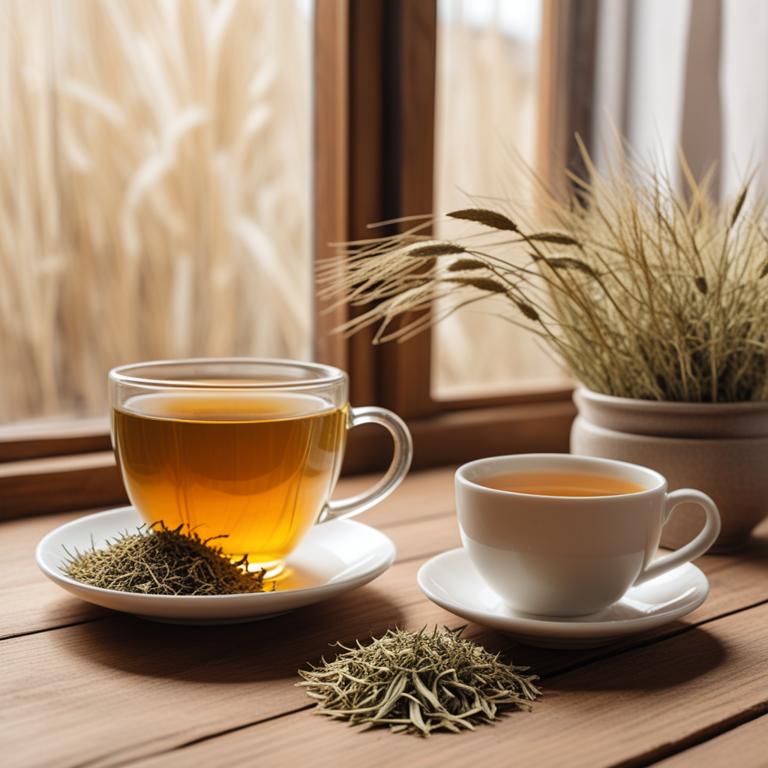7 Best Herbal Teas For Bad Breath

Herbal teas for bad breath are natural remedies that have been used for centuries to combat halitosis, a condition characterized by persistent bad breath caused by oral health issues, gum disease, or other medical conditions.
These herbal teas are rich in antioxidants, antibacterial properties, and anti-inflammatory compounds that help to reduce plaque, kill bacteria, and soothe the gums, ultimately freshening the breath and promoting oral health.
Some popular examples of herbal teas used to treat bad breath include peppermint tea, which cools and calms the mouth, chamomile tea, which reduces inflammation and promotes relaxation, eucalyptus tea, which has antibacterial properties and decongests the sinuses, and ginger tea, which has anti-inflammatory properties and helps to reduce nausea and digestive issues that can contribute to bad breath.
Additionally, other herbal teas such as sage tea, clove tea, and licorice root tea have also been used to treat bad breath due to their antimicrobial and anti-inflammatory properties.
According to "Iranian journal of basic medical sciences", teas for bad breath, such as green tea, may help reduce bad breath by decreasing gingival inflammation and bleeding, and inhibiting dental plaque formation.
Below there's a list of the 7 best herbal teas for bad breath.
- 1. Mentha x piperita teas
- 2. Satureja montana teas
- 3. Eucalyptus globulus teas
- 4. Cinnamomum verum teas
- 5. Thymus serpyllum teas
- 6. Cymbopogon citratus teas
- 7. Rosmarinus officinalis teas
Also you may be interested in...
TODAY'S FREE BOUNDLE
Herb Drying Checklist + Herbal Tea Shopping List + Medicinal Herbs Flashcards
Enter you best email address below to receive this bundle (3 product valued $19.95) for FREE + exclusive access to The Aphotecary Letter.
$19.95 -> $0.00
1. Mentha x piperita teas

Mentha x piperita teas, also known as peppermint tea, have been traditionally used to treat bad breath, or halitosis, due to their antimicrobial and anti-inflammatory properties.
The menthol and menthone present in peppermint tea help to inhibit the growth of bacteria that cause bad breath, thereby reducing the severity of the condition.
The bioactive constituents, including menthol, menthone, and limonene, work together to freshen breath and reduce gum inflammation, ultimately providing relief from bad breath.
By using Mentha x piperita teas, individuals can benefit from its natural and non-invasive approach to treating bad breath, promoting good oral hygiene and overall health.
Related Study
According to "Avicenna journal of phytomedicine", Mentha x piperita teas for bad breath may be effective in eliminating oral bacteria biofilm formation due to its essential oils' ability to remove biofilms created by studied bacteria, including within 45 seconds.
2. Satureja montana teas

Satureja montana teas, also known as mountain savory, have been traditionally used to treat bad breath, also known as halitosis.
The antiseptic and antibacterial properties of this herbal preparation help to combat the underlying causes of bad breath, such as gum disease and oral infections.
The bioactive constituents, including carvacrol and thymol, in Satureja montana teas exhibit potent antimicrobial activity, effectively reducing the growth of bacteria and other microorganisms that contribute to bad breath.
By using Satureja montana teas, individuals can benefit from a natural and non-invasive remedy that helps to freshen breath, reduce inflammation, and promote overall oral health.
Related Study
According to the study on medicinal plants used in Moroccan cities for bad breath, Satureja montana was identified as one of the 23 plants most commonly used by herbalists to manage halitosis.
3. Eucalyptus globulus teas

Eucalyptus globulus teas have been used to treat bad breath due to their antimicrobial and anti-inflammatory properties, which help to reduce the growth of bacteria and inflammation in the mouth.
The bioactive constituents present in Eucalyptus globulus teas, such as eucalyptol and flavonoids, exhibit antibacterial properties that help to combat the bacteria responsible for bad breath.
By reducing the bacterial load and inflammation in the mouth, Eucalyptus globulus teas help to alleviate bad breath, promoting a healthier oral environment.
The benefits of using Eucalyptus globulus teas to treat bad breath include improved oral hygiene, reduced risk of gum disease, and a fresher breath.
4. Cinnamomum verum teas

Cinnamomum verum teas have been traditionally used to treat bad breath due to their antibacterial, anti-inflammatory, and antiseptic properties.
The bioactive constituents, including cinnamaldehyde, eugenol, and linalool, help to inhibit the growth of bacteria that cause bad breath, thereby reducing the production of volatile sulfur compounds.
The antiseptic properties of Cinnamomum verum teas also help to reduce inflammation in the mouth and throat, further contributing to the alleviation of bad breath.
Regular consumption of Cinnamomum verum teas can provide benefits such as fresher breath, reduced gum inflammation, and a lower risk of oral infections.
Related Study
According to "Antibiotics (Basel, Switzerland)", Cinnamomum verum teas for bad breath may be beneficial as it has been reported that the essential oil extracted from Cinnamomum zeylanicum, a closely related species, has inhibition/reduction effects on the biofilm formed by Candida spp. in the oral cavity.
5. Thymus serpyllum teas

Thymus serpyllum teas have been traditionally used to treat bad breath, also known as halitosis, due to their antimicrobial and antifungal properties.
These properties help to eliminate the bacteria and fungi that cause bad breath, creating a cleaner oral environment.
The bioactive constituents of Thymus serpyllum teas, including thymol and carvacrol, exhibit strong antibacterial activity against the microorganisms that contribute to bad breath.
By incorporating Thymus serpyllum teas into one's oral hygiene routine, individuals can reap the benefits of fresh breath and improved overall oral health.
Related Study
According to "Journal of cancer research and clinical oncology", Thymus serpyllum teas may be beneficial in alleviating symptoms of oral mucositis, which can contribute to reducing bad breath.
6. Cymbopogon citratus teas

Cymbopogon citratus teas, also known as lemongrass tea, have been traditionally used to treat bad breath due to their antimicrobial and anti-inflammatory properties.
The bioactive constituents of lemongrass tea, including citral, geraniol, and limonene, help to combat the bacteria that cause halitosis, thereby reducing the severity of bad breath.
This herbal preparation helps to treat bad breath by reducing the growth of oral pathogens and promoting a healthy oral environment, resulting in fresher breath and improved overall oral health.
The benefits of consuming lemongrass tea to treat bad breath include its natural, non-invasive, and cost-effective approach, making it an attractive alternative to conventional treatments.
Related Study
According to "Antibiotics (Basel, Switzerland)", Cymbopogon citratus teas for bad breath show potential in reducing oral biofilm formed by Candida spp. due to its essential oil's inhibition and reduction effects.
7. Rosmarinus officinalis teas

Rosmarinus officinalis teas, also known as rosemary tea, have been used for centuries to treat bad breath, also known as halitosis.
The properties of this herbal preparation that help to treat this ailment include its antimicrobial and anti-inflammatory properties, which help to reduce the growth of bacteria in the mouth and alleviate inflammation in the gums.
The bioactive constituents of rosemary tea, such as carnosic acid and rosmarinic acid, have been shown to inhibit the growth of oral bacteria, including Streptococcus mutans, which is a common cause of bad breath.
The benefits of using rosemary tea to treat bad breath include its ability to freshen breath, reduce gum inflammation, and promote oral health.
Related Study
According to "PloS one", Rosmarinus officinalis teas for bad breath have been found to be effective in inhibiting oral bacteria and biofilm formation, with minimum inhibitory concentrations (MIC) ranging from 0.08-5.00 mg ml-1.